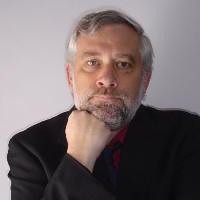Those approaches were:
- Perennialism - a teacher-centered philosophy that focuses on "great books" with the hope of impart the culture's enduring themes to students through literature. The goal is to develop the ability for rational thought in students.
- Essentialism - a teacher-centered, back-to-basics approach to education that stresses the three R's and emphasizes the remembering of facts.
- Progressivism - a student-centered philosophy that attempts to interact with the real-world concerns and experiences of students. Classrooms are more democratic and learning is more participatory and experimental than in either Essentialism or Perennialism.
 Adjectives serve as better answers than do nouns in describing what the curriculum of education should be like. The content of the curriculum should be flexible, responsive to the changes of society. The content of the curriculum should be sympathetic to the values and limitations of the students and their families. My own experience leads me to believe that every life is richer if the individual has read Kafka and Steinbeck, Aeschylus and Blake, Camus and Hemmingway. But I view the Great Books approach to education today as more of a misguided effort to preserve a cultural timeframe than anything else - to halt (or at least slow) cultural change.
Adjectives serve as better answers than do nouns in describing what the curriculum of education should be like. The content of the curriculum should be flexible, responsive to the changes of society. The content of the curriculum should be sympathetic to the values and limitations of the students and their families. My own experience leads me to believe that every life is richer if the individual has read Kafka and Steinbeck, Aeschylus and Blake, Camus and Hemmingway. But I view the Great Books approach to education today as more of a misguided effort to preserve a cultural timeframe than anything else - to halt (or at least slow) cultural change.I believe that reading (and literacy) is essential; it is the medium of later instruction. To the extent that an emphasis on basic skills has become exclusive, to the extent that a concern with math and language skills has crowded out music and the arts, the emphasis on basic skills and standards based curriculums has become a destructive force. But kids who show up at school should learn to read. As much as I hate to agree with George W. Bush about anything, they should learn to read early. They should learn to do math and be exposed to all its various and joyful forms. They should be introduced to the various formal genres of language - to poetry and letter writing, the short story and the novel. When Piaget allows, they should be introduced to epistemology and taught to ask "but how do I know that." Of course, they should be given an understanding in social studies classes of how our society works (civics) and why (history). And there is science. But none of these core classes should be allowed to displace completely the arts. And an understanding of the importance of the role of creativity in fields like math and grammar needs to be maintained...


No comments:
Post a Comment